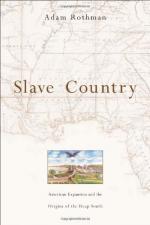|
This section contains 965 words (approx. 4 pages at 300 words per page) |

|
Abolitionist Newspaper Editor
Journalism and Social Justice.
The link between journalism and social justice has long been a feature of American life. This was certainly the case for the fiery Cassius Marcellus Clay, a wealthy Kentuckian who served as antislavery crusader, politician, journalist, soldier, and diplomat. Though his career in journalism was brief, Clay—like several other nineteenth-century journalists —founded a newspaper not to advance his fortunes but as a means to an end: the abolition of slavery.
Education.
Born in 1810 to a large slaveholding family on a plantation near Lexington, Cassius Clay received an education including instruction in French at St. Joseph, a Jesuit school in Kentucky. In 1831 he traveled east, where he met President Andrew Jackson and other important men who were friends of his father. He soon enrolled at Yale College, where he was inspired by William Lloyd Garrison, the firebrand...
|
This section contains 965 words (approx. 4 pages at 300 words per page) |

|




